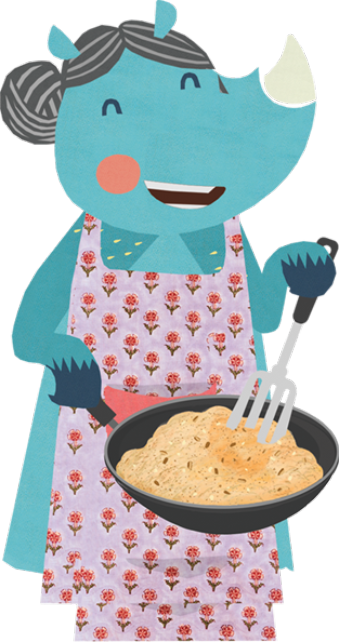Many babies experience changes in their bowel movement routines as they grow or start solid foods. Today, we'll explore the ins and outs of constipation in babies along with practical tips you can follow easily.
Understand Your Baby’s Bowel Movements First
Babies, just like adults, have individual bowel patterns. While some may pass stools multiple times a day, others may go once in two days. If the stools are soft and mushy each time, your baby is probably having a regular bowel movement.
Information is power, so let’s look at everything related to constipation, so you’re alert and informed if your baby shows symptoms.
Why Constipation Occurs
1) A change in diet: For example, when infants first start solid foods, they may experience constipation. Low-fiber foods like purees or porridges may also lead to constipation due to low fiber contents.
2) Dehydration: If your baby isn't getting enough fluids from breast or formula feeds, constipation may occur.
3) Lack of physical activity: Infants who spend extended periods lying on their back or being carried may experience slowed digestion and constipation.
4) Iron drops: Certain doctor-prescribed iron drops may have high concentrations of iron, leading to constipation in some babies.
5) Possible medical conditions: Though rare, medical conditions like hypothyroidism or anatomical abnormalities can contribute to constipation.
Signs & Symptoms to Watch Out For
1) Infrequent or decreased bowel movements: Each baby's frequency varies, but a significant decrease in regular bowel movements may indicate constipation. However, if your baby's stools are soft and easy to pass, they may not be constipated.
2) Texture of the stool: Hard, dry, or pebble-like stools instead of soft and mushy ones can suggest constipation.
3) Straining: Babies may strain during bowel movements, but it's essential to check the stool's texture. Soft stools after straining may not indicate constipation, while hard or dry stools might.
4) Abdominal discomfort: Fussiness, irritability, and excessive crying (without any apparent reason) may be signs of constipation.
5) Blood in stools: In rare cases, small anal fissures or tears may lead to streaks of blood in the stool, requiring medical attention.
NOTE: Please consult your baby’s doctor if constipation persists.
How to Manage Constipation
1) Introduce high-fiber foods: Foods like prunes, pears, and peaches can help soften stools and prevent constipation. Here’s a detailed list of foods that can help prevent constipation in babies.
Grains:
- Kangni (foxtail millet)
- Sanwa (barnyard millet)
- Kutki (little millet)
- Kodra or varagu (kodo millet)
- Whole wheat
- Steel cut oats
Legumes:
- Rajma (kidney beans)
- Printed rajma (pinto beans)
- White rajma (navy beans)
- Chole (chickpeas)
- Paapdi (lima beans)
- Urad dal
- Masoor dal
- Yellow moong dal
- Toor dal
Nuts and Seeds:
- Almond
- Walnuts
Vegetables:
- Carrots
- Spinach
- Brinjal (Eggplant)
- Broccoli
- Cauliflower
- Cauliflower greens
- French beans
- Gavaar (cluster beans)
- Green peas
Fruits:
- Raspberries
- Strawberries
- Pear with skin
- Figs
- Avocado
If your baby’s fiber intake seems sufficient, constipation could be caused by other factors. Speak to your doctor.
2) A soothing warm bath: Warm water can relax your baby's abdominal muscles and ease bowel movements.
3) Gentle leg exercise: Keeping your baby on their back, bicycle their legs gently in the air to stimulate bowel movements.
4) Ensure adequate hydration: Breast milk contains natural laxatives, so maintain regular breastfeeding or formula feeding. Offer small amounts of water after 6 months.
5) Embrace tummy time: Encourage physical activity and exploration through tummy time, crawling, and standing.
6) Calming tummy massage: A gentle clockwise tummy massage can aid digestion and bowel movements. Parents also swear by the “I Love You” tummy massage (here’s a helpful video: https://www.youtube.com/watch?v=_6jEJ-yHvoU).

(SF: Can you guys recreate the diagram to show this massage using these images as reference:
Parents, Be Mindful!
Avoid giving your baby laxatives, enemas, or oils without consulting a healthcare provider. Home remedies may not suit every baby, and it's essential to seek professional advice.
When to Seek Medical Help
1) Severe discomfort: If your baby shows signs of severe abdominal pain, incessant crying, or pulls their legs to their stomach.
2) Vomiting and bloating: If your baby experiences vomiting along with constipation and a bloated or distended belly.
3) Blood in stools: If you notice blood in your baby's stool.
4) Persistent discomfort: If other treatments don't relieve your baby's constipation.
How Can You Help Prevent Constipation
1) Encourage a varied diet: Include veggies, fruits, and whole grains in your baby's diet.
2) Ensure adequate hydration: Avoid reducing or skipping breast or formula feeds to increase solid food intake.
3) Establish a regular routine: Regular mealtimes and consistent feeding patterns can regulate bowel movements.
4) Promote physical activity: Give your baby ample opportunities to move and explore their surroundings.
 We suggest
We suggest























